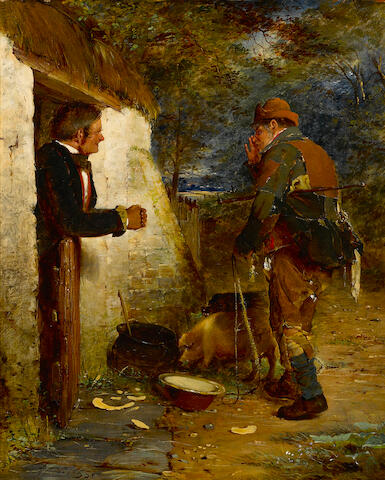 |
| Paddy's Pig - an offensive image to be eradicated |
In the wake of the slaughter of journalists in Paris, authors who write educational materials have revealed their marching orders when it comes to writing educational content. They are not to mention pork in their paragraphs because it offends some people. The people who don't eat pork, and who will kill you because you do. Just like they killed the journalists for using words and images that the killers decided were deserving of murder.
Writers have been creating educational materials under stringent guidelines for quite some time, but no one paid much heed to the tight restrictions that were in place so that a book could pass muster in Middle Eastern markets. For that reason, the characters used in books to demonstrate ordinary activities had to be living as if they were Islamic. No mingling of the sexes like there is in the western world that makes up the bulk of the educational publishing materials market. No pork or sausages, no pig in the farm yard. No Israel.
It was HarperCollins making Israel disappear from a map in a textbook that started the exposure of political correctness gone mad. The publisher just didn't put Israel in the world atlas because, well, the people buying the book don't want Israel to exist so why even teach the children that it does?
For the same reason, outrage was stoked in Great Britain when an author dared to expose the political correctness that rules Oxford University Press.
Any material for education will not include any mention or image of co-habiting, such as is common in any university dormitory. There can be no alcohol, either, which would make it impossible to show that people in France drink wine while sitting at outdoor cafes and Irish people drink beer while sitting in pubs where they socialize with neighbors. No one in the world drinks alcohol, goes the message, or eats pork, because the whole world is just like you there in Qatar.
It must be a tremendous shock for the children of the Middle East to discover that there is a whole different world out there. Is it any wonder that they chafe at western culture when they emigrate and try to settle in to a new life? What they thought they would find does not actually exist, even though their teachers and the teaching material used indicated that things would not be so different between Algeria and France.
It is the governments of the Middle Eastern countries that demand the content, and publishers are only giving them what they ask for. The publishers could say no, of course, and refuse to participate in a whitewash that is largely the opposite of education.
As long as someone is willing to pay for propaganda, there is no incentive to not keep producing it. Competition is fierce in the educational publishing materials game. If not us, a publisher will say, then the profit goes to a rival who can use that money to grow bigger and stronger. As for the writers, they are largely freelancers who know that there is little enough money in their livelihood. Turning down a commission to make a stand against illiteracy is not economically feasible.
So what do the stockholders of these publishing companies think?
No comments:
Post a Comment